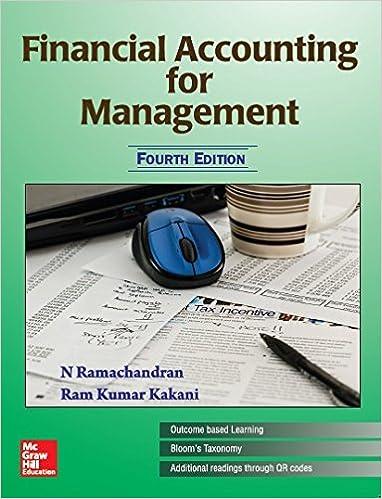The Indian Premier League (IPL) is a professional Twenty-Twenty cricket league in India contested annually by franchise
Question:
The Indian Premier League (IPL) is a professional Twenty-Twenty cricket league in India contested annually by franchise teams representing Indian cities, such as, Chennai Super Kings (CSK), Delhi Daredevils (DD), Mumbai Indians (MI), Kings XI Punjab (KXIP), Kolkata Knight Riders (KKR), Royal Challengers Bangalore (RCB), Rajasthan Royals (RR), and Sunrisers Hyderabad (SH). The league, founded by the Board of Control for Cricket in India (BCCI), is scheduled over April and May of every year. Almost all the franchisees were unlisted, closely-held private entities.
D Murali and N S Vageesh spent some time in looking at the accounting practices among the IPL teams. And to their surprise, they found significant variances in critical items of cost, revenue, fixed assets accounting and reporting. For instance, on amortization of aggregate franchisee fee (essentially, IP rights), the period of write off by RCB was 50 years, SH 25 years while all other franchisees have rationally adopted 10 years. As a corollary CSK, SH, KXIP, RCB, and RR amortized the same as intangible rights; while DD, MI and KKR directly charged the same to operating cost as franchisee fee. Correspondingly, the sums due to BCCI have been reflected as ‘unsecured loans’ by RR, long-term liability by SH, current liability by RCB and KXIP, and none by DD, MI, and KKR.
Based on the above note, please answer the following questions:
(a) Assuming each of the above mentioned transaction by the IPL teams to be ₹‘X’ amount (say, for aggregate franchisee fee), write down the possible accounting entries (in the first two years) for CSK, DD, KXIP, RCB, RR, and SH.
(b) What could be the possible explanation behind the divergent accounting practices among IPL teams? From a analyst perspective, what type of difficulties will be posed by the users of such information? Give example. Also suggest possible way in which the difficulties could be tackled.
(c) As part of the regulatory process participant (say, ICAI advisor OR NACAS membership), if you were asked to ensure a way out to rectify these divergent accounting practices – how would you resolve the same (say, using existing global accounting and reporting norms)? Discuss.
Step by Step Answer:

Financial Accounting For Management
ISBN: 9789385965661
4th Edition
Authors: Neelakantan Ramachandran, Ram Kumar Kakani





